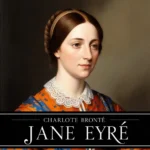Introduction
Vikrant Khanna’s The Girl Who Knew Too Much PDF is a compelling narrative that combines elements of romance, mystery, and supernatural intrigue. This book has captured the hearts of readers with its captivating plot and profound themes. Khanna, a well-known author, has a knack for blending realism with fantastical elements, making his stories resonate deeply with his audience.
| Name of PDF | The Girl Who Knew Too Much |
|---|---|
| No Pages | 223 |
| Author | Vikrant Khanna |
| Originally Published | 2017 |
| Language | English |
| Genres | Romance novel, Fiction |
| Size | 0.7 MB |
| Chek, latest edition |
People We Meet on Vacation PDF
Table of Contents

Plot Summary
The story revolves around Akshara, a young girl with an uncanny ability to foresee events. Her life takes a dramatic turn when she meets Harry, a charming stranger with a dark past. As their paths intertwine, Akshara finds herself unraveling mysteries that challenge her understanding of reality. The narrative is a rollercoaster of emotions, filled with unexpected twists and turns that keep the reader on edge.
Detailed Character Analysis
Akshara: The Protagonist
Akshara is a complex character whose journey drives the narrative forward. Her psychic abilities set her apart, making her both a beacon of hope and a target of suspicion. Her courage and determination in the face of adversity are inspiring, making her a relatable and admirable protagonist.
Other Significant Characters
Harry, the enigmatic stranger, adds depth to the story with his mysterious background and evolving relationship with Akshara. Supporting characters, such as Akshara’s friends and family, provide additional layers to the plot, each contributing to the overall mystery and tension of the narrative.
Themes and Motifs
Love and Relationships
At its core, The Girl Who Knew Too Much is a love story. It explores the complexities of human relationships, the sacrifices one makes for love, and the enduring power of a strong emotional bond. The romance between Akshara and Harry is tender yet fraught with challenges, reflecting the highs and lows of real-life relationships.
Mysticism and Supernatural Elements
The supernatural elements in the book add a layer of intrigue and suspense. Akshara’s psychic abilities are central to the plot, driving the mystery and creating an atmosphere of uncertainty and excitement. This blend of realism and fantasy is a hallmark of Khanna’s writing style.
Setting
Description of the Locales
The story is set in contemporary India, with vivid descriptions of urban and rural landscapes. Khanna’s detailed portrayal of the setting enhances the immersive experience for readers, making them feel a part of Akshara’s world.
How the Setting Influences the Story
The setting plays a crucial role in shaping the narrative. The cultural backdrop, social dynamics, and physical environments influence the characters’ actions and the story’s progression. The bustling city scenes contrast with the serene countryside, reflecting the internal conflicts and resolutions within the characters.
Writing Style
Narrative Techniques
Khanna employs a first-person narrative, allowing readers to experience the story through Akshara’s eyes. This perspective adds intimacy and immediacy to the narrative, making the reader more invested in her journey.
Use of Language and Tone
The language is simple yet evocative, capturing the essence of the characters’ emotions and the story’s mood. The tone shifts seamlessly between suspenseful, romantic, and reflective, keeping the reader engaged throughout.
Symbolism in the Novel
Key Symbols and Their Meanings
The novel is rich in symbolism, with various elements representing deeper meanings. For instance, Akshara’s visions symbolize the conflict between destiny and free will. The recurring motif of mirrors reflects the theme of self-discovery and the duality of human nature.
Plot Twists and Turns
Major Twists in the Storyline
Khanna masterfully weaves unexpected twists into the plot, each one more surprising than the last. These twists keep the reader guessing and add to the overall suspense of the story. From revelations about characters’ pasts to unforeseen consequences of Akshara’s visions, the plot is a constant thrill ride.
Impact of These Twists on the Reader
The twists not only heighten the suspense but also deepen the emotional impact of the story. They challenge the reader’s assumptions and keep them engaged, eager to see how the story unfolds.

Critical Reception
Reviews from Critics
The Girl Who Knew Too Much has received positive reviews from critics, who praise Khanna’s storytelling and the novel’s unique blend of genres. The book’s pacing, character development, and thematic depth have been highlighted as its strongest points.
Reader Responses
Readers have also lauded the book for its engaging plot and relatable characters. Many have expressed how the story resonated with them on a personal level, citing the emotional journey of the characters as particularly impactful.
Comparisons with Other Works
Similar Books by Vikrant Khanna
Khanna’s other works, such as Love Lasts Forever and The Girl I Last Loved, share thematic similarities with The Girl Who Knew Too Much. These books also explore complex relationships and feature elements of mystery and intrigue.
Books with Similar Themes by Other Authors
For readers who enjoyed The Girl Who Knew Too Much, books like The Girl on the Train by Paula Hawkins and Gone Girl by Gillian Flynn might also appeal. These novels similarly blend suspense with deep character studies and intricate plots.
The Ending Explained
Breakdown of the Climax
The climax of the novel is a dramatic and emotional crescendo that ties together the various plot threads. Without giving too much away, it involves a significant revelation that changes Akshara’s understanding of her abilities and her relationship with Harry.
Interpretation of the Ending
The ending is open to interpretation, inviting readers to ponder the implications of Akshara’s final choices. It leaves a lasting impression, prompting reflection on the themes of fate, love, and self-discovery.
Impact on Readers
Emotional and Psychological Impact
The novel’s emotional depth and psychological complexity leave a profound impact on readers. Akshara’s journey is one of growth and self-discovery, which resonates deeply with anyone who has faced personal challenges and uncertainties.
Messages and Lessons Conveyed
At its heart, The Girl Who Knew Too Much conveys powerful messages about the importance of love, the courage to face one’s fears, and the strength found in accepting oneself. It encourages readers to embrace their uniqueness and trust their intuition.
Why You Should Read It
Unique Selling Points
The novel’s unique blend of romance, mystery, and supernatural elements sets it apart from typical genre fiction. Khanna’s engaging writing style and well-developed characters make it a compelling read.
Target Audience
This book will appeal to fans of romantic thrillers, supernatural mysteries, and anyone looking for a thought-provoking and emotionally engaging story.
Discussion Points
Questions for Book Clubs
- How do Akshara’s psychic abilities shape her relationships and the plot?
- What are the key themes of the novel, and how are they developed?
- How does the setting influence the story?
- What do you think of the ending, and what are its possible interpretations?
- How do the plot twists enhance the narrative?
Themes for Discussion
- The balance between destiny and free will
- The role of love and sacrifice in personal growth
- The impact of supernatural elements on the story’s realism
Conclusion: The Girl Who Knew Too Much PDF
In conclusion, The Girl Who Knew Too Much by Vikrant Khanna is a multifaceted novel that offers a rich tapestry of emotions, themes, and suspense. It is a journey of love, mystery, and self-discovery that captivates the reader from start to finish. Whether you’re a fan of romance, thrillers, or supernatural tales, this book has something for everyone.
FAQs about The Girl Who Knew Too Much PDF
What genre does The Girl Who Knew Too Much belong to?
The novel is a blend of romance, mystery, and supernatural fiction.
Is The Girl Who Knew Too Much part of a series?
No, it is a standalone novel.
What are some similar books to The Girl Who Knew Too Much?
Similar books include The Girl on the Train by Paula Hawkins and Gone Girl by Gillian Flynn.
Who would enjoy reading The Girl Who Knew Too Much?
Fans of romantic thrillers, supernatural mysteries, and emotionally engaging stories will enjoy this book.
What are the main themes of the novel?
The main themes include love and relationships, mysticism, self-discovery, and the conflict between destiny and free will.





